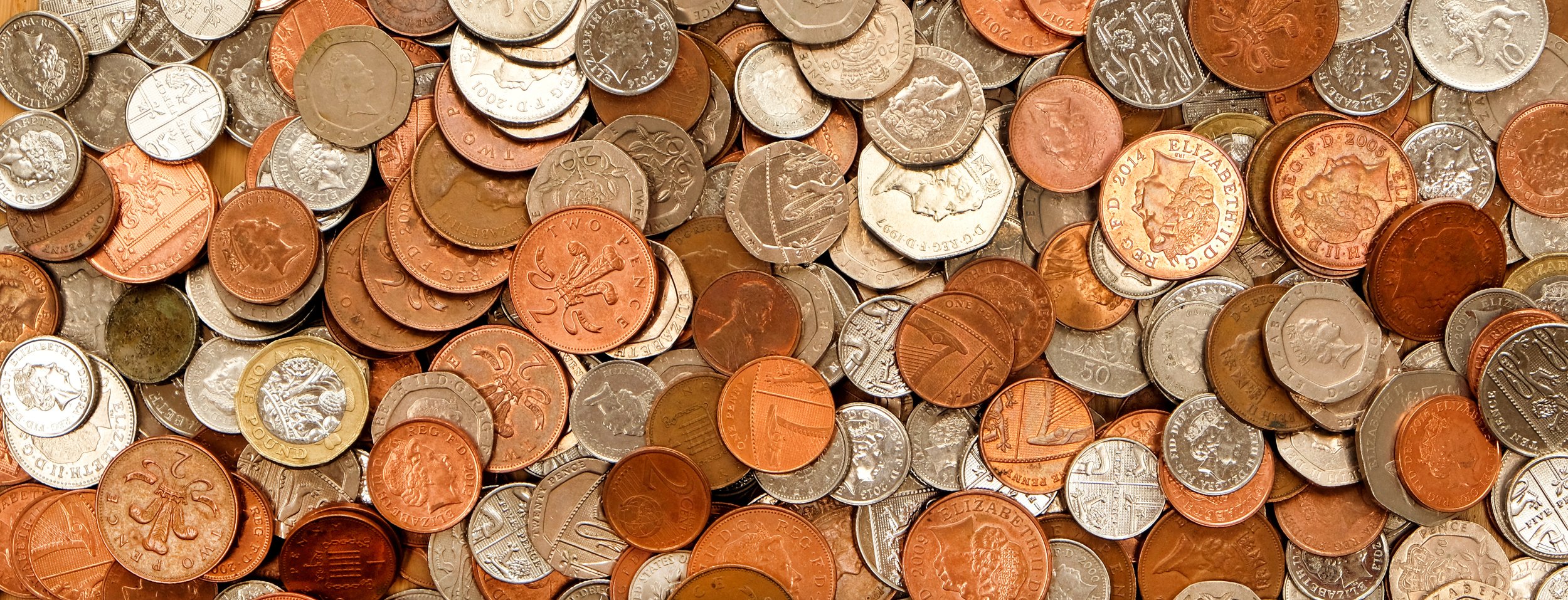Keep The Change
The Wall Street Journal recently profiled Reworld, a sustainable waste management processing company based in Morristown, PA. The company’s main business is to turn the trash it collects into fuel. However, in 2017, it also launched a very profitable side business of collecting coins after employees kept finding them in the trash that they collected. I was shocked to discover that over the past seven years, the company has collected more than $10 million worth of coins—in the trash! Even more shocking was the assertion by the company that the millions that it collects is only a fraction of the $68 million in coins that Americans throw away each year!
That statistic blew my mind. $68 million is a lot of moolah—and we throw it away. The company claims that it finds the coins everywhere: in seat cushions, ashtrays, sinks and even vacuum cleaners. It further claims that most people throw coins away because they are increasingly difficulty to use. And I suppose that there is a measure of truth to that last contention. After all, how many places can you purchase something using change? Besides the laundromat, not too many. Even parking meters take credit cards, and I can’t remember the last time I even saw a pay phone. The only time we really use coins is if we want to irritate someone. There is a hugely entertaining story about a man who paid his last child support payment in pennies (you can watch it here)—all $8000 dollars! It’s funny, but sad. I mean who does that LOL? I’m not judging him though. I’d be lying if I said I didn’t understand or appreciate his disposition. But the point is, coins are extremely inconvenient, which is why most of us throw them away.
Unfortunately, many of us not only throw coins away. We also throw opportunities, relationships and our health away as well. Coins are small. But even though they are small, they are extremely valuable. But we have a tendency to dismiss, ridicule, or ignore small things. But as the success of Reworld reminds us, small things can add up. One of my favorite insights of all time is from the mind of Apostle Fred Price, who once said while teaching a message on the significance of exercise in maintaining good health that all of his life he heard people quote 1 Timothy 4:8, which says that “bodily exercise profits little.” The Apostle went on to share on so many people use that verse as excuse to demean the merits of exercise. But he has one of the greatest comebacks of all time. The Apostle said that although exercise may “profit little, we ought to get the little that it profits.” Excersise may be a small thing. But as the succes of Rewordl reminds us, small things can add up.
Depending on how you count, Jesus performed between 33 and 40 miracles. The only miracle that occurs in each of the four gospels (Matthew, Mark, Luke, and John) is traditionally referred to as the feeding of the five thousand. It is a miracle that is full of incredible lessons. and poignant truths. It is a reminder that Jesus is concerned about our bodies and not just our souls—because he fed a multitude that had been listening to him teach all day. It is a reminder that Jesus can take a little and do alot—because he took a few pieces of bread and fish and used them to satisfy the hunger of a vast crowd. And it is a reminder that often the least likely people have the key to our problems—because it was a little boy who had the bread and fish.
But there is one aspect of this miracle that we often overlook. According to John 6:12
After everyone was full, Jesus told his disciples, “Now gather the leftovers, so that nothing is wasted.” So they picked up the pieces and filled twelve baskets with scraps left by the people who had eaten from the five barley loaves.
One of my seminary professors pointed out that it isn’t accidental that they were able to fill twelve baskets with the leftovers. Since there were twelve disciples, it stands to reason that each disciple got a basket! It is clear that Jesus was trying to instill principles of thrift, frugality, and economy into the thinking of his followers. It seems that Jesus wanted us to understand that miracles don’t happen every day. But when they do, we should not waste them. In our seasons of overflow and abundance, we should always grab a basket so that nothing is lost. In other words, keep the change!
Here’s today’s question: Who or what am I throwing away? All of us need to start a personal version of Reworld, and start collecting the money, relationships, and opportunities that we have thrown away. And for those of us who are believers, we should never forget that at the end of his life, Jesus was thrown away. The scriptures say that the “stone that builders rejected” became the chief cornerstone. What the world saw as a worthless rabbi who only deserved to be rejected and crucified, God saw as the foundation of the new creation.
Somebody might be getting rich on what you are throwing away!

